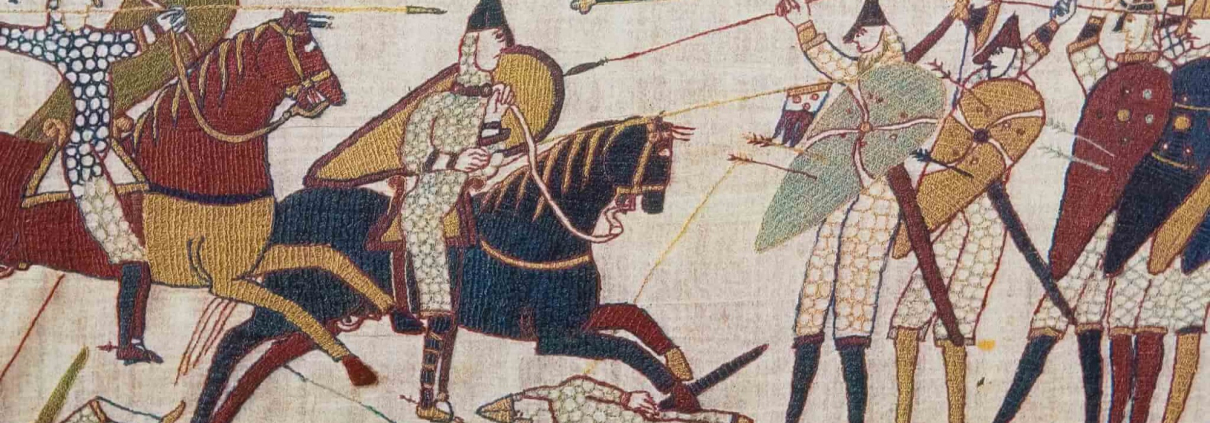English and French, a match made in…Hastings?
English is a Germanic language, but its native speakers will find it more difficult to draw parallels between it and its sister languages, German and Dutch, than for example speakers of Spanish and Italian, which are Latin-based languages where the connections are much more apparent.
English is a Germanic language, but its native speakers will find it more difficult to draw parallels between it and its sister languages, German and Dutch, than for example speakers of Spanish and Italian, which are Latin-based languages where the connections are much more apparent.
One big reason for this is the language’s dramatic milestone in 1066, the Battle of Hastings, which stemmed from a dispute that arose between William the Conqueror and King Harold. The entire story is beautifully depicted in the Bayeux Tapestry, a work commissioned by the Norman conquerors and actually produced by the people they had just conquered.
Replacing the English-speaking monarchy and aristocracy with French-speaking ones made French the official language, while English remained the language of the working class. This is why “beef” and “pork”, words of French origin, became the names for these animals “on the plate”, and “cows” and “pigs”, words of Old English origin, became the names for these animals “on the hoof”. Being in such close proximity, the languages affected each other. When English reasserted its dominance in the 1400s after the Black Plague, when social mobility was more possible, the language was very much changed from the Old English it was before the invasion. This is what is now referred to as Middle English.
As many of the adopted French words were for concepts that already had words in English, it was common for the French and English versions to take on separate connotations. This can be seen in some of the terms today. For example, a “cordial reception” (French origin) is more formal than a “hearty welcome” (Old English origin). Some other examples of French words were those for fashion: gown, cloak, satin, and even moustache. There were also some for social order: homage, viscount, marquess, though the Old English “knight” managed to outlast the French “chevalier” – yet we still have “cavalier” in modern English.





















Leave a Reply
Want to join the discussion?Feel free to contribute!